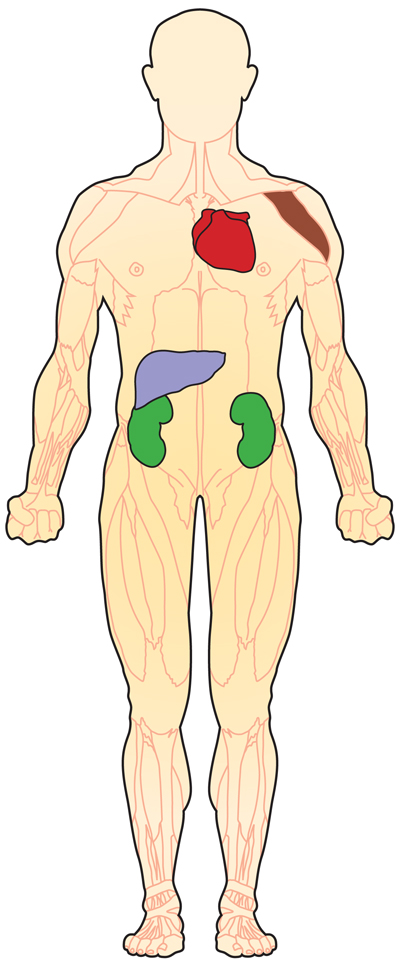Metabolic Myopathies
Metabolic Myopathies
 What are metabolic diseases of muscle?
What are metabolic diseases of muscle?
Metabolic diseases of muscle were first recognized in the second half of the 20th century. Each of these disorders is caused by a different genetic defect that impairs the body’s metabolism (the collection of chemical changes that occur within cells during normal functioning).
What are the symptoms of metabolic diseases of muscle?
Muscles require a lot of energy to work properly, and metabolic diseases of muscle interfere with chemical reactions involved in drawing energy from food. When energy levels become too low, muscle weakness and exercise intolerance with muscle pain or cramps may occur.
In a few metabolic muscle disorders, symptoms aren’t caused so much by a lack of energy, but rather by unused fuel molecules that build up inside muscle cells. This buildup may damage the cells, leading to chronic weakness. For more, see Types of Metabolic Diseases of Muscle and Signs and Symptoms.
What causes metabolic diseases of muscle?
Normally, fuel molecules derived from food must be broken down further inside each cell before they can be used by the cells’ mitochondria to make energy. (The mitochondria inside each cell could be called the cell’s “engines.”) Metabolic muscle diseases are caused by problems in the way certain fuel molecules are processed before they enter the mitochondria, or by the inability to get fuel molecules into mitochondria. For more, see Causes/Inheritance.
What is the progression of metabolic diseases of muscle?
Metabolic muscle diseases that have their onset in infancy tend to be the most severe, and some forms can be fatal. Those that begin in childhood or adulthood tend to be less severe, and changes in diet and lifestyle can benefit most people with the milder forms.
What is the status of research on metabolic diseases of muscle?
MDA-supported researchers are pursuing a number of promising leads in their quest to understand the causes and discover treatments for metabolic diseases of muscle. One treatment strategy, called enzyme replacement therapy, already has led to the development of a successful commercial treatment for the metabolic disorder Pompe disease. For more, see Research.

